- Home
- Countries & Regions
- Africa
- Ethiopia
- Topics & Events
- MNGD Project to Transform Ethiopian Rural Roads
Topics & Events
April 30, 2019
MNGD Project to Transform Ethiopian Rural Roads
Problematic soils, represented by black cotton soil, are widely found in Africa. Expansive soil covers more than 10% of Ethiopia's 1.1million km2 of total land area. This soil, which is prone to shrinking or swelling due to changes in water volume, causes roads to crack and lift up. This damages existing roads and in some cases leaves communities isolated as their entrance to main roads is cut off, leaving them without access to social services and trade routes.
Expansive soils present significant geotechnical and structural engineering challenges globally. Therefore, JICA has chosen to tackle this problem in Ethiopia by facilitating a joint international research between Japan and Ethiopia. Researchers from Kyoto University and Addis Ababa Science and Technology University (AASTU) are taking the lead in developing plant-derived soil additives and their operation model to reduce road disasters on problematic soil.
The Universal Rural Road Access Program (URRAP) designed by the Government of Ethiopia, seeks to free rural residents from the road access constraints by connecting all kebele's (neighbourhoods) to all weather-roads. It stresses that rural roads should be improved and maintained so that they can be accessible year-round, in all weather conditions. The second phase of URRAP highlights the need for: (1) innovative construction methods using local materials (2) low cost construction methods and (3) maintenance using community participation or micro and small enterprises.
The five-year research project, which will run from April 2019 to March 2024, aims to develop a cellulose-based product, which can be added to the soil to stabilize the sub-base of roads. In Japan, a cellulose-based powder called celldoron has proven effective when added to concrete mix for making roads. In Ethiopia, researchers will be studying ensete (false banana leaves) and other plants in South Omo Zone to see if their cellulose can be used as a soil-stabilizing additive.
Jinka University, which is located in South Omo Zone and the Ethiopian Roads Authority (ERA) will also be involved in the research, mainly in developing operation models in South Omo Zone and in the suburbs of Addis Ababa city respectively. During the duration of the project, trainings will take place in Japan and at Jinka University on road disaster management for Ethiopian researchers. One of the outputs of the project will be to produce manuals and guidelines for building roads on problematic soil, especially for villages identified for road disaster countermeasures in South Omo Zone.
This projects contribution towards the SDGs
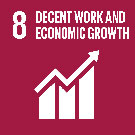
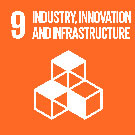
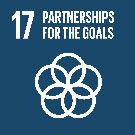
 MNGD (Making Road Networks for Glocal Development)
MNGD (Making Road Networks for Glocal Development)
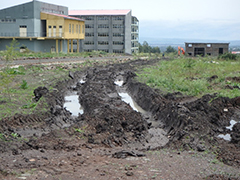 Expansive soil
Expansive soil
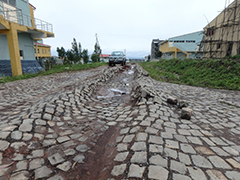 Distorted roads due to expansive soil
Distorted roads due to expansive soil
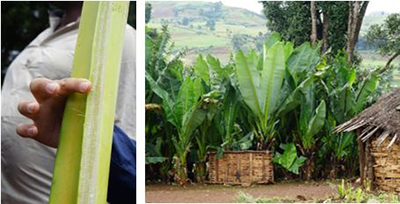 False banana trees (ensete) widely found in South Omo Zone. The cellulose from the ensete may be used as an additive to stabilize the soil.
False banana trees (ensete) widely found in South Omo Zone. The cellulose from the ensete may be used as an additive to stabilize the soil.
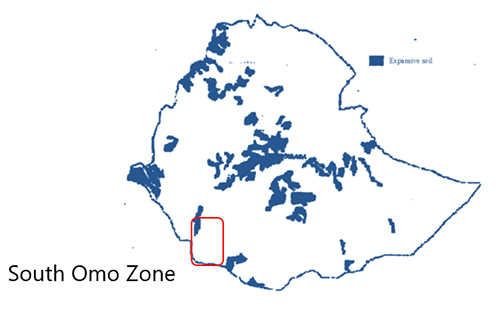 Map of Ethiopia showing areas with expansive soil.
Map of Ethiopia showing areas with expansive soil.

- Asia
- Oceania
- Latin America
- Africa
- Angola
- Benin
- Botswana
- Burkina Faso
- Burundi
- Cameroon
- Comoros
- Côte d'Ivoire
- Democratic Republic of the Congo
- Djibouti
- Eritrea
- Ethiopia
- Gabon
- Ghana
- Kenya
- Liberia
- Madagascar
- Malawi
- Mauritius
- Mozambique
- Namibia
- Niger
- Nigeria
- Rwanda
- Senegal
- Seychelles
- Sierra Leone
- Somalia
- South Africa
- South Sudan
- Sudan
- Tanzania
- Uganda
- Zambia
- Zimbabwe
- Middle East
- Europe
- About JICA
- News & Features
- Countries & Regions
- Our Work
- Thematic Issues
- Types of Assistance
- Partnerships with Other Development Partners
- Climate Change / Environmental and Social Considerations
- Evaluations
- Compliance and Anti-corruption
- Science and Technology Cooperation on Global Issues
- Research
- JICA Development Studies Program / JICA Chair
- Support for the Acceptance of Foreign HRs / Multicultural and Inclusive Community
- Publications
- Investor Relations
